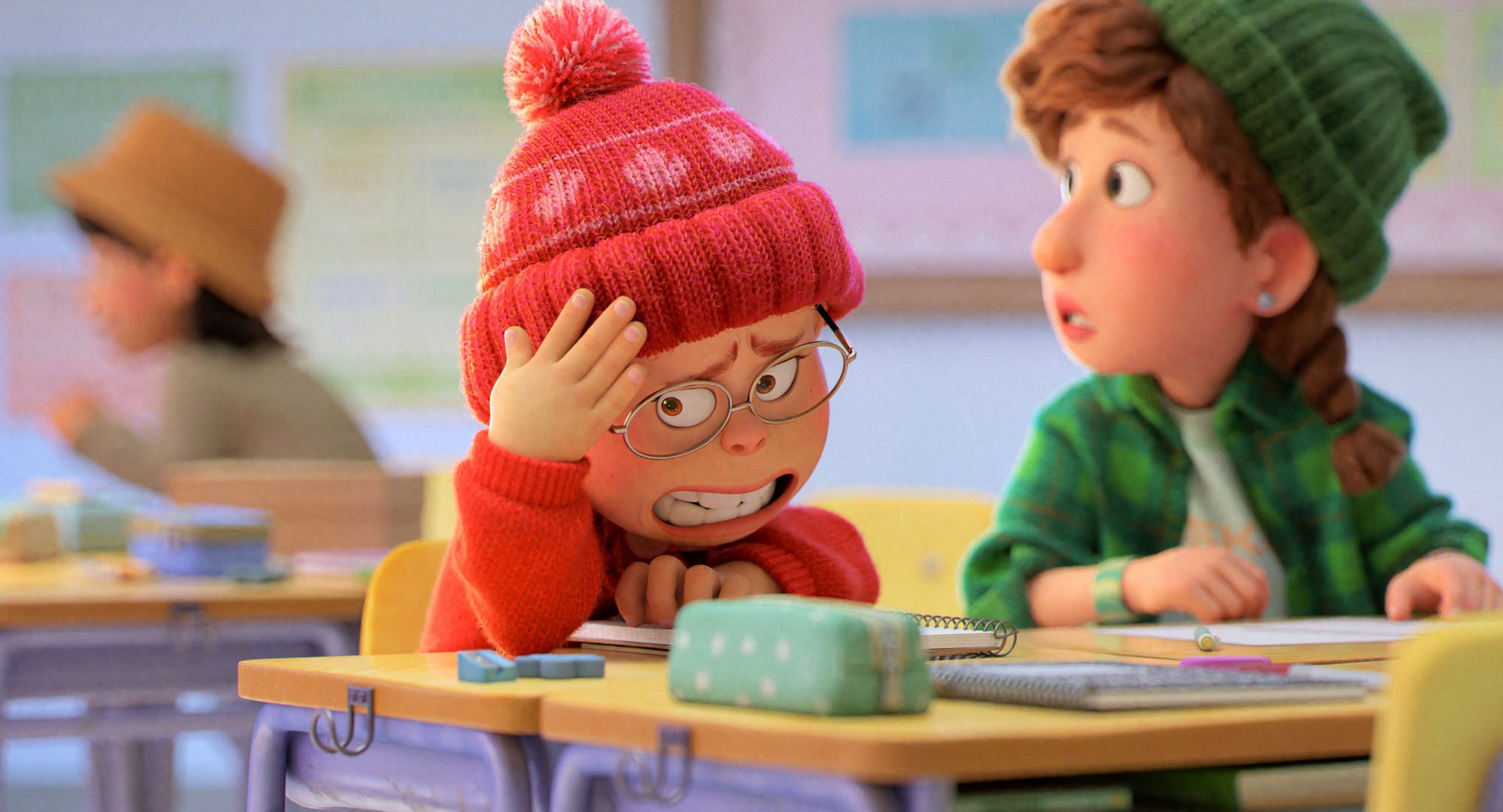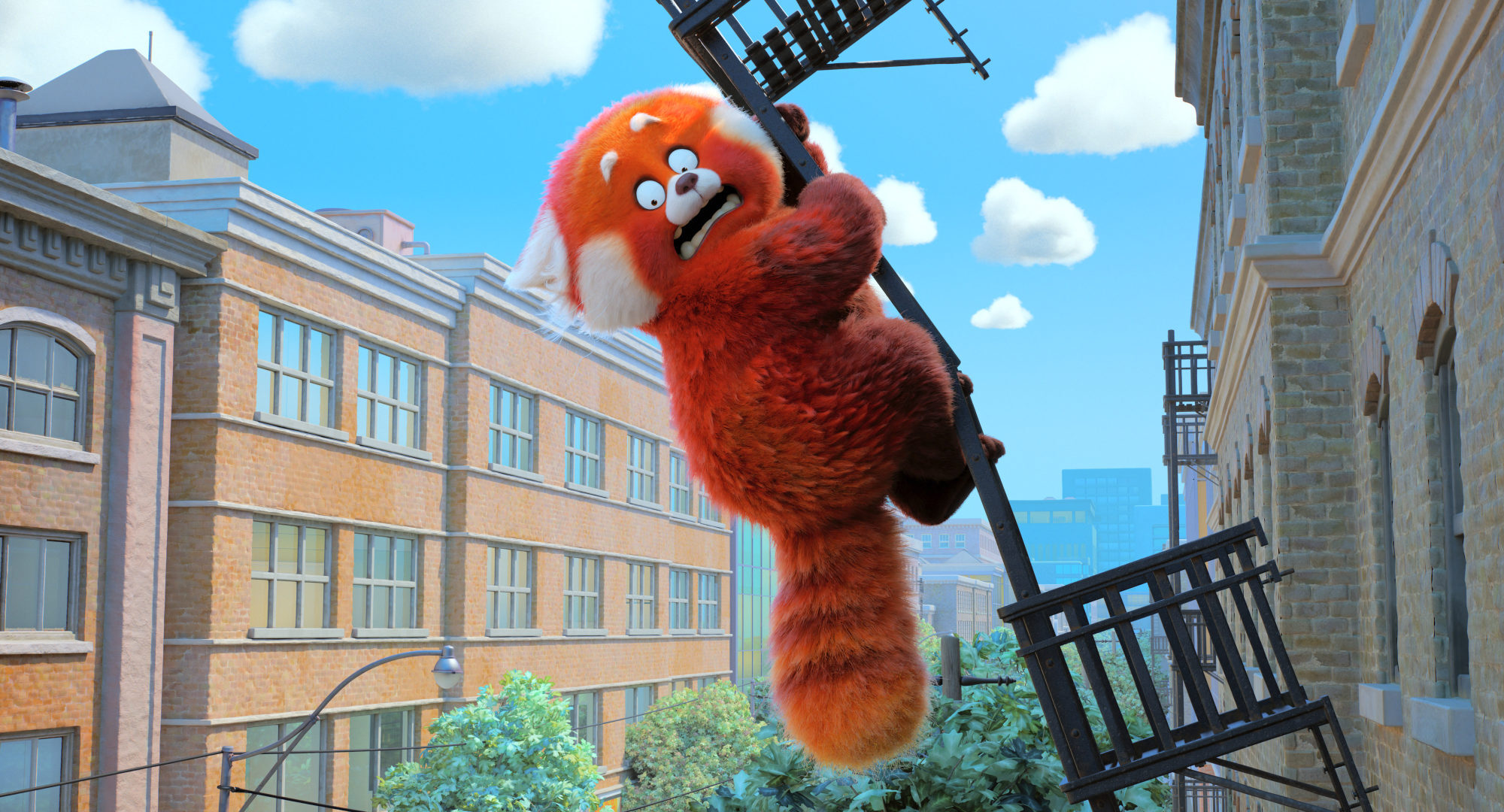
Review | Turning Red movie review: Bao director’s Pixar coming-of-age comedy is both funny and authentic
- Meilin’s adolescence in Toronto’s Chinatown is marked by routine until she hits puberty and hears of a family curse: any outburst and she becomes a red panda
- Chinese-Canadian Domee Shi, an Oscar winner for Bao, directs with panache and sensitivity this story of a tiger mum – or is it panda mum? – and her daughter
4/5 stars
A precocious teenager discovers, much to her horror, that she can transform into a giant red panda in Turning Red, the latest animated offering from Pixar Studios. The film marks the feature directing debut of Chinese-Canadian Domee Shi, who won an Academy Award in 2019 for her animated short film, Bao.
Set in Toronto’s Chinatown circa 2002, Shi’s bright and fluffy coming-of-age caper is an often hilarious and commendably frank appreciation of the awkwardness of adolescence.
The action-packed adventure also serves as a nostalgia-fuelled celebration of filial piety and a cautionary tale about the dangers of over-parenting.
Meilin (voiced by Rosalie Chiang) is a 13-year-old straight-A student, and the only child of the indomitable Ming (Sandra Oh) and her introverted husband, Jin (Orion Lee).
When not at school or buried in homework, Meilin helps her parents with the upkeep of a local shrine, which is dedicated to their ancestor San-yi, guardian of the red panda.
Their regimented existence descends into chaos when puberty inevitably comes calling and, literally overnight, Meilin discovers a monstrous family secret.

Reluctantly, Ming reveals to her daughter that the women of her family are subject to San-yi’s curse, by which any emotional outburst causes them to transform into a large crimson fuzzball.
She is insistent that their shameful secret must be kept under wraps until a magical containment ceremony can be performed, but Meilin discovers that her inheritance, equal parts Totoro and Teen Wolf, can be exploited to her benefit.
Once awkward and shy, she is now the most popular kid in school, and is soon reaping the financial benefits of being strong, cute and cuddly.

At its heart, Turning Red is an examination of the relationship between demanding mother and daughter and how conflicts and expectations have perpetuated and been compounded across the generations.
“Honouring your parents sounds great,” Meilin warns at the film’s outset, “but if you take it too far, you might forget to honour yourself.”
As Meilin learns, her predicament pales next to Ming’s own unresolved issues with her mother, which prove every bit as dangerous and damaging as an inherited physical abnormality.

Shi and fellow screenwriter Julia Cho navigate these weighty emotional themes with the playful dexterity we have come to expect from Pixar. Turning Red’s carefully observed cultural motifs feel authentic without becoming cliched, and show reverence for the formidable nature of tiger mums – or should that be panda mums – everywhere.
Turning Red will start streaming on Disney+ on March 11.

